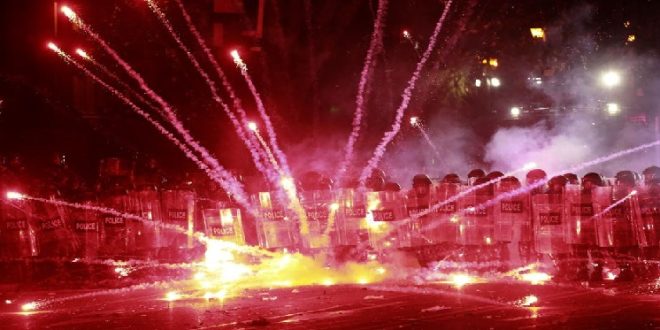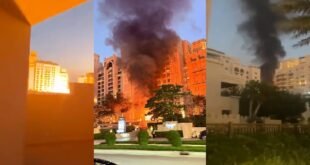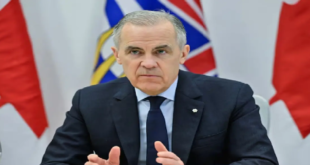08-12-2024
TBILISI: Georgia’s capital Tbilisi has resounded with the crackle of fireworks late into the night for the past week their eruptions becoming a symbol of the large pro-EU protests that have plunged the South Caucasus country into crisis.
With riot police using water cannon, tear gas and mass arrests to quell the protests, demonstrators have responded with fireworks, hurling them at police and the imposing parliament building, where many thousands of protesters gather nightly.
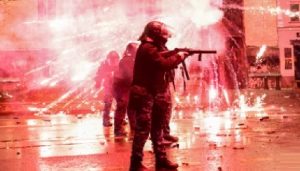 The country’s government last week said it was freezing talks on European Union accession until 2028, abruptly halting a long-standing national goal and prompting outrage among many pro-European Georgians.
The country’s government last week said it was freezing talks on European Union accession until 2028, abruptly halting a long-standing national goal and prompting outrage among many pro-European Georgians.
Alexandre, a 21-year-old student who has been demonstrating most nights, said the protesters’ use of fireworks represented a form of self-defence against a crackdown that has seen over 300 people detained. He said he had not personally thrown fireworks.
“Fireworks are the only thing for us to defend from the police, because police use violence against us,” he said, declining to give his family name.
Each night, the city sees a small hardcore of protesters with covered faces launch pyrotechnics at armoured riot police officers.
Often, it develops into an extended standoff, with protesters hurling fireworks into parliament, while officers respond with hoses of cold water.
In one scene, broadcast by Georgian television channels last week, a protester fired volleys of fireworks at officers from what appeared to be an improvised launcher.
The interior ministry says scores of its officers have been injured at the demonstrations.
The Georgian government, which says the protests are part of an attempt by pro-EU opposition parties to stage a revolution in the country of 3.7 million people, has moved to ban the sale of fireworks.
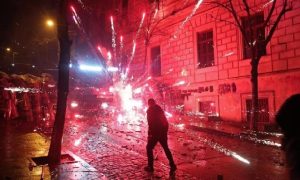 Prime Minister Irakli Kobakhidze said on Thursday that sales of fireworks in Georgia were up 90% in November, compared with the previous year.
Prime Minister Irakli Kobakhidze said on Thursday that sales of fireworks in Georgia were up 90% in November, compared with the previous year.
He said that was evidence “that someone planned and prepared the violent, systematic, rude actions that we saw on Rustaveli Avenue”, referring to the city’s main thoroughfare.
“All this was well planned and organised in advance,” Kobakhidze said.
Officials said they found fireworks and ingredients for petrol bombs at the offices of opposition parties during raids this week. The groups say the items were planted there by authorities.
Local media has reported that Tbilisi’s fireworks shops were shuttered this week and ordered to stop selling pyrotechnics, along with other items popular among protesters, including gas masks and helmets.
Firework seller Giorgi Marmaladze had set up an impromptu stall close to the protest’s gathering point prior to Thursday’s demonstration. He said he was continuing to sell his wares, despite the ban.
“This is the first time I’ve heard this,” he said.
Some protesters defended the use of fireworks as a largely harmless method of self-defence.
Shalva, a 26-year-old protester who said he had not thrown fireworks personally, said: “We use them because it cannot hurt the people like they are doing. It’s also beautiful and it helps us defend ourselves.” (Int’l Monitoring Desk)
 Pressmediaofindia
Pressmediaofindia
